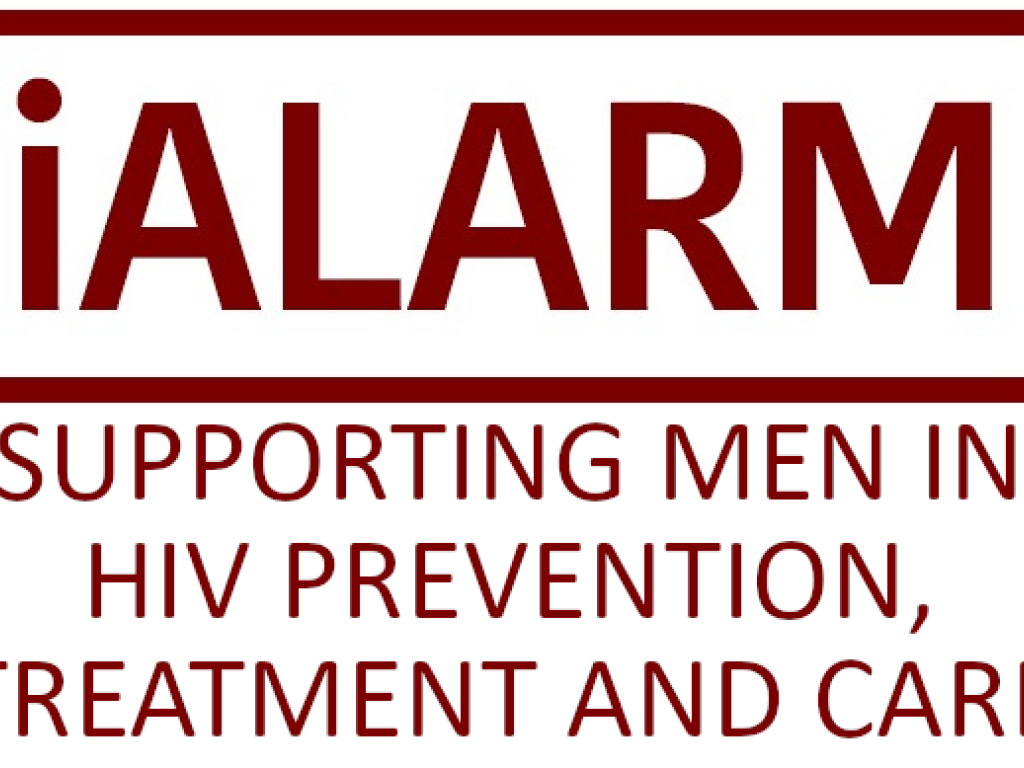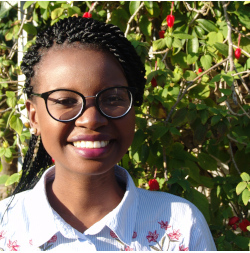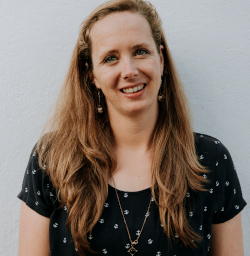iALARM Overview In 2020: Understanding Men, Masculinity, And The HIV Cascade

Nonzuzo Mbokazi (Researcher, UCT); Myrna van Pinxteren (Researcher, UCT)
Editorial Note: Nonzuzo Mbokazi and Myrna van Pinxteren worked as coordinators in the iALARM study for the last several years. In the seventh and final year of the iALARM project, this article reflects on our research accomplishments and community partner engagement. The final year of the project was interrupted by the COVID-19 pandemic, which set back project plans. However, iALARM still achieved many successes in 2020.
Student Accomplishments in 2020
As we start the final year of the study, iALARM students and staff have published several academic articles in peer-reviewed journals. Further, the iALARM postgraduate student cohort was able to complete their research projects answering some of the research questions of the project ; the research was strongly grounded in the latest scientific theory and method as well as highly knowledgeable of local context (of the Klipfontein District, Gugulethu) and was able to work in inter-disciplinary teams with a range of diverse stakeholders on health problems that are driven by a complex mix of individual, social and structural factors.
There were several key accomplishments for students in the iALARM project. Myrna van Pinxteren (also Research Coordinator for iALARM) completed her PhD, with a thesis titled: Tracing ‘paper’, discovering people: three ethnographic case studies exploring the use of health information to improve health services in Gugulethu. Her research involved 18 months of intensive ethnographic fieldwork within the iALARM project and aimed to understand why and how different stakeholders—health workers, community activists and members of the iALARM Task Team—make use of health information to improve the access to and quality of care for individuals living with HIV in Gugulethu. Merlary Chidavaenzi, also completed her MPH with a thesis focused on the role of street committees as activists to strengthen health services in Gugulethu. The thesis, entitled “We are the police, the doctors, the everything of the community, but we don’t do health”: Exploring the role of street committees in strengthening health services in Cape Town is being revised for publication.
In the winter of 2019, the iALARM project welcomed Ana Lucia Espinosa Dice and Aly Beeman from Brown University, who both graduated in 2020 with their MPH. Using spatial analysis methods, Ana Lucia sought to visualize and quantify patterns of clinic transfers and travel distance among a cohort of patients living with HIV in the Western Cape to understand the spatial epidemiology of the clinic transfer phenomenon. It has been submitted for publication. Aly completed a qualitative study which explored the motivations of people living with HIV to "clinic transfer" and their relationship to care engagement.
Community Engagement During Covid-19
As expected, COVID-19 impacted everyone in 2020. As the world drastically changed and we became more acquainted to the ‘new normal’ of wearing masks, social distancing and lockdown, the Movement for Change and Social Justice (MCSJ) was centre stage, conscientizing the community of Gugulethu to take the necessary measures to flatten the curve. MCSJ demonstrated the power and importance of community-based organisations when many low-income areas were devastated by the consequences of the COVID-19 pandemic. MCSJ filled an existing gap in community engagement by providing health information about COVID-19 and handing out masks and hand sanitisers. In collaboration with other organisations including the Activist Education and Development Centre (AEDC) and the Gugulethu Development Forum (GDF), they also opened a soup kitchen to provide one meal a day for children in precarious circumstances. MCSJ also distributed food parcels to those most in need.
While other activities planned by MCSJ for 2020 were suspended due to COVID-19 restrictions, MCSJ was able to raise the alarm about socio-economic issues in their communities, including the rise in gender-based violence cases in South Africa. In a speech presented during Level 2 of lockdown, President Cyril Ramaphosa stated that South Africa was facing two pandemics: the Covid-19 pandemic and that of the killing of women and children, or gender-based violence (GBV) – which had risen drastically during lockdown. Although MCSJ couldn’t proceed with its planned activities for the year due to the pandemic, the MCSJ’s Men’s Forum issued a statement condemning all forms of violence against women and children.
iALARM Research Outputs
Despite the COVID-19 related challenges experienced by all team members, iALARM was able to publish several articles in peer-reviewed international academic journals. Firstly, Bey Schmidt, Chris Colvin, Ameer Hohlfeld and Natalie Leon published ‘Definitions, components and processes of data harmonisation in healthcare: a scoping review’, where they identified definitions for data harmonisation to improve the relationship between data harmonisation and health management decision-making.
Chris Colvin, Myrna van Pinxteren, Mandla Majola, Natalie Leon, Alison Swartz and Nonzuzo Mbokazi wrote ‘Fostering a healthy public for men and HIV: A case study of the Movement for Change and Social Justice (MCSJ)’ in Palgrave Communications. This paper describes the successes and challenges of MCSJ and outlines the relationship between MCSJ (a grassroots movement) and UCT. The article also provides key lessons for fostering a healthy public for men and HIV in South Africa and beyond.
Building on this, Chris Colvin reflected on the methodological challenges of conducting research on activism in his editorial for Critical Public Health - ‘Building an implementation science of activism’. In this piece, he stresses that public health research methods can help both health activists and scholars better understand the intricacies of health activism.
Based on one of the four iALARM case studies, Nonzuzo Mbokazi, Rutendo Madzima, Natalie Leon, Mark Lurie, Morna Cornell, Bey Schmidt and Chris Colvin published a paper in the Journal of the International Association of Providers of AIDS Care (JIAPAC) focusing on the experiences and perceptions of health workers engaging with HIV-positive men. This paper highlighted service-related challenges and strategies to increase men’s engagement in health services in Cape Town.
Mark Lurie, Kipruto Kirwa, Julia Callaway, Morna Cornell, Andrew Boulle and Chris Colvin collaborated on the paper ‘Quantifying the HIV treatment cascade in a South African health sub-district by gender: Retrospective cohort study’ which was published in the Journal of Tropical Medicine & International Health. Using routinely collected data, they reconstructed the HIV treatment cascade to understand rates of linkages to, and engagement in, HIV care for men and women in Cape Town.
Finally, the Journal of the International AIDS Society (JIAS) launched the special issue on men and HIV at a satellite session (‘Men & HIV: Insights from sub-Saharan Africa’) at AIDS 2020. Members of iALARM were directly involved. Morna Cornell edited 6 out of 11 papers and co-authored several of the outputs, focusing on gendered health institutions, population-wide differentials in HIV service access and outcomes in the Western Cape and the need to reframe the approach to heterosexual men in the HIV epidemic in sub-Saharan Africa. This last-mentioned paper argues that men’s poorer access to HIV care cannot be reduced to individual behaviour and argues for more evidence-based HIV interventions to improve men’s health outcomes.
Networking Men and HIV
There has been significant progress in raising the profile of men in HIV care over the past year. In addition to publications which prioritize men, their health and participation in health services, there were several members of the Men & HIV Network who shared preliminary results of studies. Firstly, Shawn Malone shared results of a promising project to increase retention of men in care in Kwazulu-Natal in South Africa. Second, Morna Cornell set up a series of meetings between colleagues working on men’s preferences for TB treatment support and colleagues who have done similar work with men living with HIV. There is a strong overlap between challenges facing men with TB and men with HIV, formative research. Survey instruments were shared which allowed TB researchers to build on the body of HIV work and avoid re-inventing the wheel. In her professional capacity, Morna also gave input on important policy and programme documents, including MenStar, the South African National Strategy on Men’s Health and UNAIDS’ ‘Male engagement framework’. iALARM’s efforts to grow the HIV & Men Network on local and global levels will continue in 2021 and beyond through its integration into the BRIDGES programme, another DSBS initiative.
iALARM Plans for 2021 And Beyond
In our last year (2021), the iALARM project will continue publishing the findings of its several sub-studies. Currently, several papers are being developed, including a qualitative monitoring and evaluation paper, a paper about the use of health information in MCSJ’s community engagement campaigns, and two papers outlining the results of the male clinic case study and the soccer coaches case studies. To continue the important work of improving the linkage of men to HIV care, Chris Colvin, Morna Cornell, Mark Lurie and Myrna van Pinxteren submitted a R21 proposal to the NIH for a pilot study which aims to reduce HIV stigma against men in Gugulethu. If successful, this pilot study would collaborate closely with MCSJ, street committees and health forums to set up community dialogues to facilitate HIV information sharing and mitigate pervasive HIV stigmas which prevent men (and women) from taking up HIV testing and effectively linking to treatment.
We are also in the process of developing a ‘community organising’ field school with DSBS, MCSJ and the University of Virginia. This initiative will bring South African and US students together with activists from both countries to learn key principles and skills related to community organising for health.
Conclusion
The iALARM project made significant strides in 2020, despite the global COVID-19 pandemic. Colleagues in the project successively mentored two early-career researchers from under-represented groups, Yandisa Sikweyiya and Nonzuzo Mbokazi, to lead inter-disciplinary health social science research to improve services for HIV-positive men in South Africa. The iALARM project was able to build capacity for rigorous, inter-disciplinary health social science research by providing spaces for researchers from different universities and disciplines to engage and share lessons learned. iALARM researchers also developed a network of research, community, and health system stakeholders to improve the engagement of men in HIV care. Though the project is winding down amid an ongoing pandemic, we are proud of these concerted efforts to conduct inclusive and critically minded research on long-standing issues of men and HIV care.
The iALARM project members would like to thank all our partners and researchers for their hard work and commitment over the years. Read all our latest news and more about the iALARM project at www.iALARM.org.za.
Author Biographies

Email: mbokazinonzuzo@gmail.com
